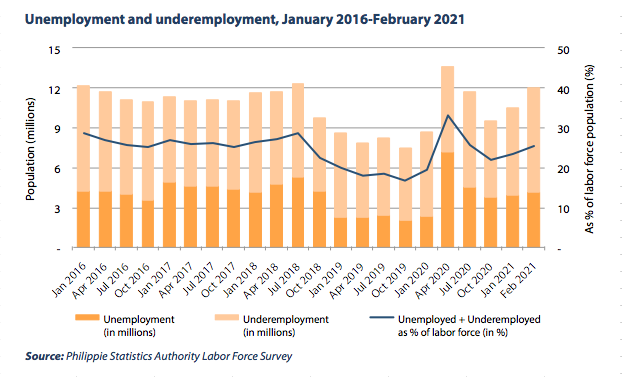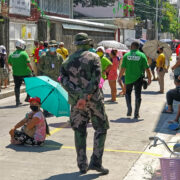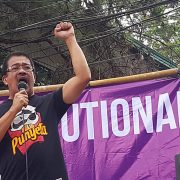Joblessness worsens in February and will get worse with ECQ — IBON
The February 2021 labor force survey confirms that unemployment and underemployment are worsening despite economic managers’ hype of rebounding employment, said research group IBON. The group also said the country’s jobs crisis will get even worse with the government still resorting to economically-destructive enhanced community quarantine (ECQ) rather than smarter containment measures as its main strategy against COVID-19 while waiting for vaccines.
In a joint statement, the economic managers said that the gradual reopening of the economy is bringing more people back to the labor force and has restored 1.9 million jobs in February 2021. The Philippine Statistics Authority (PSA) reported employment increasing to 43.2 million in February 2021 from the previous month. This is higher than the pre-pandemic employment level of 42.5 million in January 2020.
IBON however said that merely higher employment compared to the pre-pandemic level is a low standard for claiming recovery and ignores how Filipinos rejoining the labor market still cannot find enough decent work.
The group pointed out how joblessness and the lack of decent work continue to worsen. The combined number of unemployed (4.2 million) and underemployed (7.9 million) rose to 12 million in February, IBON stressed. This is 39% more than the 8.7 million unemployed (2.4 million) and underemployed (6.3 million) in pre-pandemic January 2020.
IBON also noted how the official estimate of 12 million combined unemployed and underemployed in February 2021 is an increase from 10.5 million in January 2021. As it is, this is the highest since April 2020 according to official figures. The group however said that the real tally is likely actually worse because the official methodology has stopped counting millions of jobless Filipinos who stopped looking for work or are not immediately available for work.

IBON stressed that a closer look at the 1.9 million jobs created shows that these are mostly of poor quality, meaning low-paying, insecure or informal work. Of the supposedly new jobs generated, some 48% (923,000) were merely part-time or less than 40 hours per week, and a large 23% (446,000) were actually categorized as “with a job, not at work”.
The group pointed out that this has resulted in the combined number of Filipinos in part-time work and those “with a job, not at work” now comprising 40% of the total employed, which is a marked increase from the 32.4% in pre-pandemic January 2020. On the other hand, mean hours worked per week is markedly down to just 38.9 hours in February 2021 from 41.3 hours in January 2020.
IBON also raised how many of the jobs supposedly generated are in sectors where employment is temporary or poor quality. For instance, those working in wholesale and retail trade increased by 995,000 to 9.6 million, in other services (which includes household based work) by 294,000 to 2.8 million, in transportation and storage by 147,000 to 3.1 million, in public administration and defense by 142,000 to 2.6 million, and in manufacturing by 136,000 to 3.3 million.
The trade subsector, in particular, is known for its low-paying and insecure work. Wage and salary workers in this sector were paid just Php358 compared to the average daily basic pay in industry (Php404) and across all services (Php483), according to latest available data in 2018.
IBON suspects that a significant number of new jobs are in the informal sector, with many Filipinos struggling to make a living however they can rather than be completely unemployed. Using the combined share of self-employed, employers in family farms or businesses, and unpaid family workers as a proxy for informal sector work, they make up a huge 57% (1.1 million) of net employment created in February 2021. This is as the group noted the number of employers in family farms or businesses decreasing by 189,000, possibly due to small business closures during the pandemic.
IBON said the jobs situation will only get worse in March and April with the Duterte administration implementing another round of ECQ in the “Greater Manila area” which accounts for as much as 47% of the country’s gross domestic product (GDP). The group said that enterprises in the trade, transport, hotel and restaurant, recreation and other non-essential sectors will be particularly hard hit. This is while they are still reeling from the worst economic contraction in the country’s history.
The group said that the country’s economic recovery most of all starts with the government testing more, tracing better, and ensuring that COVID patients are isolated and do not spread the coronavirus. Household distress can also be immediately relieved and economic activity spurred by meaningful amounts of emergency cash aid, wage subsidies, and other fiscal stimulus measures. #
= = = = = =
Kodao publishes IBON articles as part of a content-sharing agreement.







